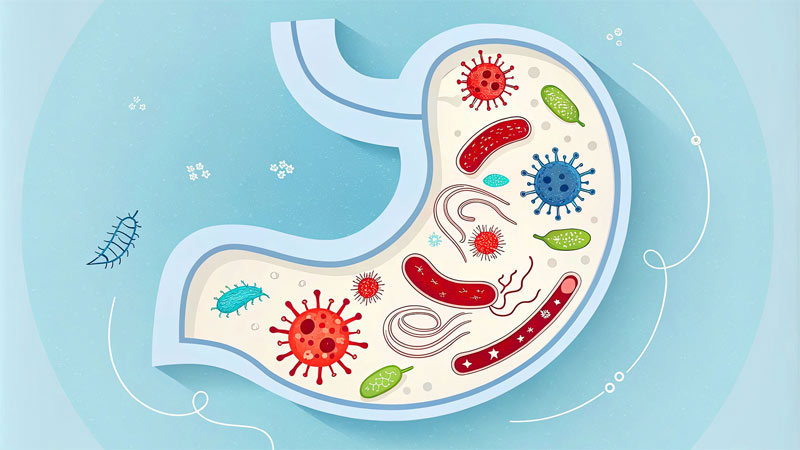You might not think much about selenium, a trace mineral found in foods like nuts, seafood, and eggs. But new research is shedding light on its surprising role in aging and our gut health, especially for men. A recent study revealed that not getting enough selenium in your diet can actually speed up some of …
You might not think much about selenium, a trace mineral found in foods like nuts, seafood, and eggs. But new research is shedding light on its surprising role in aging and our gut health, especially for men.
A recent study revealed that not getting enough selenium in your diet can actually speed up some of the changes we see in our gut bacteria as we get older. This was particularly noticeable in aged male mice with severe insulin resistance, a common issue in Type 2 Diabetes.
The Rise of a Beneficial Bacterium: Akkermansia muciniphila
One of the most interesting findings was the significant increase of a specific beneficial gut bacterium, Akkermansia muciniphila, in aged male mice with selenium deficiency. This bacterium is often associated with good gut health and has been linked to improved metabolic health.
In fact, when researchers gave Akkermansia muciniphila to mice with selenium deficiency-induced type 2 diabetes-like symptoms, they saw some remarkable improvements. The symptoms were alleviated, the gut’s protective barrier function improved, and gut inflammation was reduced. This suggests that the increase in Akkermansia muciniphila might be a way the body tries to cope with selenium deficiency.
What Does This Mean for You?
While this research was conducted in mice, it opens up exciting avenues for understanding how diet, gut health, and aging are intertwined. It highlights the potential importance of:
- Selenium Intake: Ensuring you get enough selenium through your diet could be important for maintaining a healthy gut as you age. Foods rich in selenium include Brazil nuts (just a few provide a good amount!), tuna, sardines, eggs, and chicken.
- Gut Microbiota: The balance of bacteria in your gut plays a crucial role in your overall health. This study reinforces the idea that supporting a diverse and healthy gut microbiome can have wide-ranging benefits.
More research is needed to fully understand these connections in humans, but this study provides fascinating insights into how our bodies respond to dietary deficiencies and how beneficial gut bacteria might step in to help.
We hope this information helps you better understand the fascinating world of nutrition and gut health!
Huang YC, Lu HY, Zhang L, Olivier A, Wu TL, Hsu CY, LeGrand C, Zeng H, Curran S, Wang Q, Nannapaneni R, Zhang X, Ticó M, Mariotti M, Wu RTY, Combs GF Jr, Cheng WH. Dietary Selenium Deficiency Accelerates the Onset of Aging-Related Gut Microbial Changes in Aged Telomere-Humanized Mice, With Akkermansia muciniphila Being the Most Prominent and Alleviating Selenium Deficiency-Induced Type 2 Diabetes. Aging Cell. 2025 Jun 20:e70130. doi: 10.1111/acel.70130. Epub ahead of print. PMID: 40540389.–








